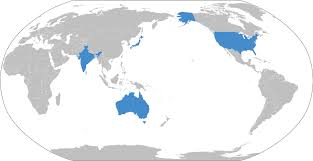Understanding the Quad Countries and Their Global Impact

Introduction
The Quadrilateral Security Dialogue, commonly referred to as the Quad, is an informal strategic partnership comprising four significant democracies: India, the United States, Japan, and Australia. In recent years, the Quad countries have increasingly become a focal point in discussions regarding regional security, economic cooperation, and democratic values in the Indo-Pacific region. Understanding the implications of this alliance is essential given the shifting geopolitical landscape.
The Formation and Objectives of the Quad
The Quad was initially formed in 2007, but it gained renewed momentum in 2020 amidst rising concerns over China’s influence in the Indo-Pacific region. The countries participating in the Quad seek to promote a free and open Indo-Pacific, ensuring maritime security, and addressing challenges such as climate change, technology, and economic resilience.
Recent Developments
At a recent summit held in Tokyo in May 2022, leaders from the Quad countries emphasized the importance of their partnership in securing supply chains and countering disinformation campaigns. In addition, they agreed to initiate joint efforts in combating the COVID-19 pandemic by distributing vaccines and addressing health security issues. The Quad’s role in providing humanitarian assistance and disaster relief (HADR) across the region has also been a significant focus.
Impact on Regional Security and Economy
The Quad countries have increased collaboration on defense and security matters, conducting joint military exercises and sharing intelligence. This collaboration plays a pivotal role in countering the rising military assertiveness of China in the South China Sea and surrounding areas. Economically, the Quad aims to enhance trade ties among member countries and build resilient supply chains that minimize dependency on single sources, especially concerning critical technologies and resources like semiconductors.
Conclusion
The Quad countries, through their ongoing cooperation, position themselves as a counterbalance in the Indo-Pacific, promoting shared values and addressing common challenges. As global dynamics evolve, this alliance may play a crucial role in shaping international policies and ensuring stability in a region marked by competition and complexity. Observers predict that the collaboration among the Quad will deepen in the coming years, further solidifying their influence on global governance and regional security.









